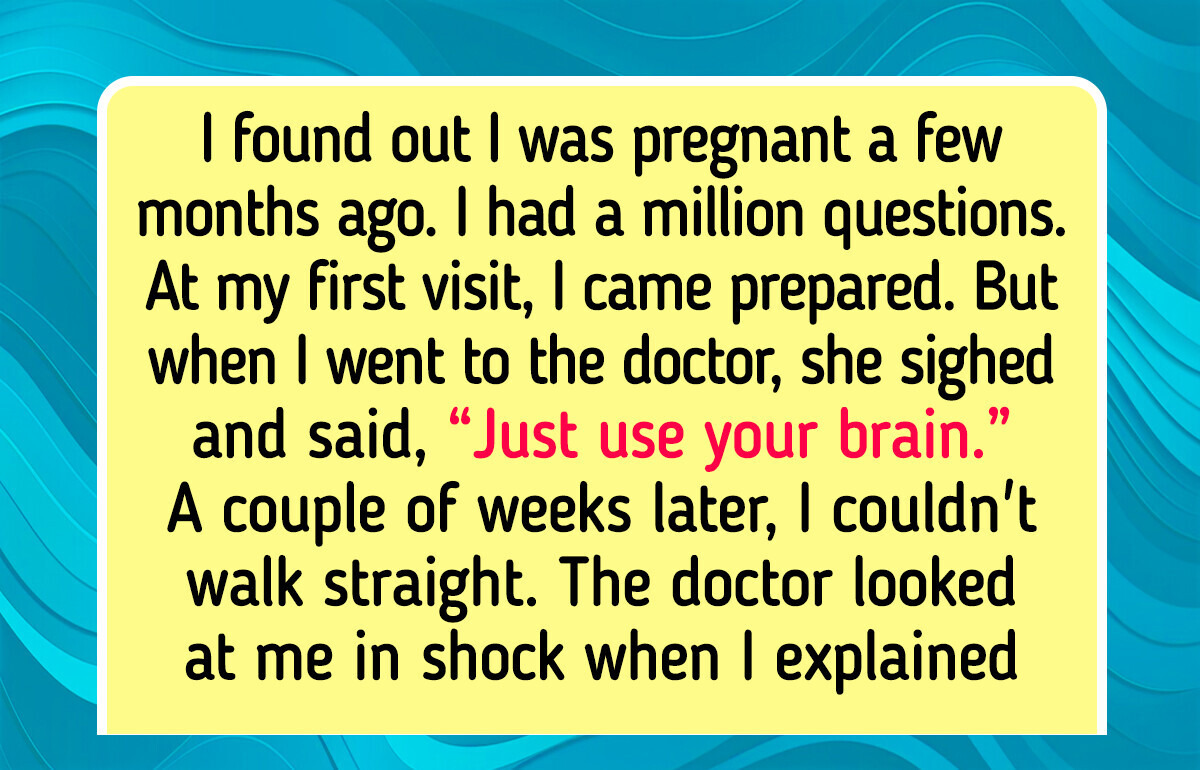13 Roommate Stories That Could Be Turned Into Hollywood Dramas


Medical professionals are meant to guide and support their patients, especially during critical times like pregnancy. Their expertise and attentiveness can make a significant difference in ensuring the health and safety of both the parent and the baby. However, when concerns are brushed off or dismissed, it can lead to serious consequences.
Dear Bright Side,
I found out I was pregnant a few months ago. I had a million questions. At my first visit, I came prepared. I had a small list—not even a crazy one—just the basics.
Can I eat soft cheese? What should I do if I get a fever? Is it normal to feel lightheaded sometimes? I wasn’t panicking, just trying to be informed. But when I went to the doctor, she sighed and said, “Just use your brain.”
A couple of weeks later, I couldn’t walk straight. My head was pounding so hard I could barely think. My vision was blurry, my hands were swollen, and I felt like I was going to pass out every time I stood up.
But I convinced myself I was just overreacting. I didn’t want to be the paranoid first-time mom who called the doctor over nothing. My husband dragged me to the ER.
Turns out, my blood pressure was dangerously high, and I was in the early stages of preeclampsia. The doctor looked at me in shock when I explained why I hadn’t come in sooner. “Why didn’t you call your OB when the symptoms started?”
I muttered, barely conscious, “She told me to use my brain.” The nurse actually laughed. Now, I’m on medication, strict bed rest, and under the care of a new OB—one who actually answers my questions instead of rolling her eyes at them.
Thank you for sharing your story! Such cases can be tough and may make you wonder if you have taken the right path. Here are some tips that might help if you find yourself in a situation like this one.
If something feels wrong, don’t second-guess yourself. Your body knows when something is off, and you are the best advocate for your own health. It’s better to ask “too many” questions than to ignore a potentially serious issue.
A good doctor should never dismiss concerns. If your provider makes you feel small for asking questions, it’s time to find someone new. Compassion and clear communication should be the bare minimum in medical care.
Keep track of any unusual changes in your body, even if they seem minor. Write down headaches, swelling, dizziness, or anything that feels “off.” This information can be crucial when speaking to medical professionals and can help them take your concerns seriously.
If your doctor dismisses your symptoms, don’t hesitate to see someone else. A second opinion can mean the difference between catching a serious condition early and dealing with life-threatening complications later.
Medical professionals are meant to guide, support, and educate—not make patients feel stupid. If you ever feel dismissed, push back. Your health is worth it.











